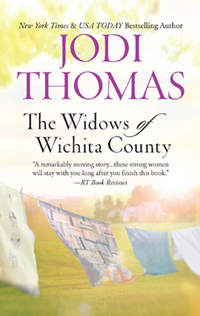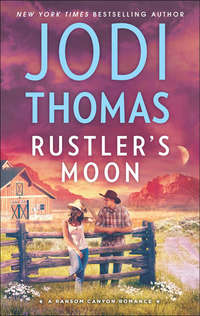
Полная версия
The Secrets of Rosa Lee
“All right, seven.” Micah couldn’t blame Logan. His choice at home was usually a kid’s TV dinner or fast food.
Jimmy’s double tap on the door sounded and Logan was off like a racer hearing the gun. He grabbed his backpack and jacket, slapped a high five on his dad’s hand and ran for the door.
Micah scraped the half-full bowl down the disposal and reached for the old leather backpack he used as a briefcase. He knew at thirty-four it was long past time to switch to a briefcase, but the bag he had carried since college still felt right on his shoulder. He hated change. There had been so much change in his life, he clung to the familiar in small ways whenever he could.
“You need anything before I go?” He glanced toward the basket, but the cat was sound asleep.
He felt stupid talking to a cat, but it beat the silence of the house. “See you at noon, Baptist.”
If he hurried, he’d have time for breakfast at the Main Street Café before the committee meeting. No one thought it strange when a man ate breakfast alone, Micah thought. He’d be safe from sad looks, for once.
With coffee cup in hand, he grabbed his coat and headed toward his car. A blast of sunshine and cold air hit him as he ran the ten feet to the old garage. He tried to hold the coffee and pull on his coat. Brown spots plopped along the walk. By the time he got to his car, the half cup of coffee he’d managed to save was cold. He drank it anyway while he waited for the heater to warm. This time of year, by midafternoon, he’d need the air conditioner. Nothing made sense to him anymore, not even the weather.
He missed the green of East Texas, but he couldn’t return. Not yet. When he had moved to Clifton Creek and accepted the associate pastor’s position at First United Methodist Church, he’d decided to give his grief a year to mend before returning home. But Amy’s memory hadn’t faded. In a few months, she’d be gone three years. His heart and body still ached for her. Some nights, he ran miles trying to outdistance the emptiness of his life. Logan was all that gave him reason to breathe most days.
He sat at the edge of the counter at the café, ordered pancakes and strawberry pie and pretended to read the Dallas paper while he tried to figure out when he’d have time in the day to shop. When he’d finished eating, he paid out, speaking to almost everyone in the place.
He elected to walk to his meeting a few blocks away at the edge of town.
Micah smiled and waved as the plump Rogers sisters climbed from their van. He’d become an expert at smiling…at hiding…at pretending to live.
The Rogers sisters were so short they tumbled out of the Suburban like beanbag dolls. Micah thought of suggesting they drive a smaller vehicle. Since neither had children, he saw no need for six extra seats. But maybe, to them, the van was like some of the old men’s pickups around town. Farmers who moved in from their farms wound up hauling nothing more than groceries around, but they thought they still had to drive a truck. Maybe the sisters had needed the van when they’d taught school and had simply become used to it.
“Look Beth Ann, it’s that young Reverend Parker,” the smaller of the sisters whispered in a voice Micah could easily hear. “He’s so handsome it makes me think of changing religions.”
Micah fought down a laugh. He certainly wasn’t young at thirty-four, and no one but Amy had ever thought him handsome. “Morning, Miss Rogers.” He offered his hand to the one who’d spoken. If she’d called the other Beth Ann, then she must be Ada May. He turned to the other. “Miss Rogers.”
Both women smiled, but it was Ada May who spoke again. “You get on this committee, too?”
Micah nodded. As the associate, part of his job was to serve on every committee and charity board that came along. This one didn’t seem to require much. They only had to vote on what to do with the old place. He hadn’t even gone inside and had already made up his mind. They needed to tear it down before it fell. Micah envisioned a park in its place, maybe with a running track.
“Isn’t it exciting?” Beth Ann finally found her voice. “I’m sixty-four and, to my knowledge, no one’s ever been past the door of this place in my lifetime. There’s no telling what we’ll find.”
“Mice,” Ada May mumbled. “Maybe even rats and spiders. Rattlers, if it’s warm enough.”
Beth Ann shuddered and pulled a purse, big enough to use for a sleepover, from the van. “We came early, hoping to walk around the grounds before the meeting started. Would you like to join us, Reverend?”
Micah offered each an arm. “I’d love to, ladies. I planned to do the same thing.” He didn’t add that he had been early to everything for three years.
Stones still marked the path through what had once been a fine garden. Huge bushes of twisted twigs looked misshapen. Micah guessed in spring they’d bloom once more as they had for almost a hundred years. A stand of evergreens along the north property line blocked the wind and cast a shadow over part of the plants, making them appear gray and lifeless.
Ada May tugged on Micah’s arm. “The garden seems to have no order, twisting and turning, but if you stay on the path, you’ll make it back to the house. All paths turn back on themselves and lead to the rear of the house.”
“Now, how do you know that, sister?” Beth Ann asked from just behind them.
“Everyone knows that,” Ada May snapped. “Young folks bring their dates here and have for years. Lovers walk the path at twilight.”
“Well,” Beth Ann interrupted. “We’ll know if it’s fact after we walk it. I don’t go around telling anything that I don’t know to be true, until I check it out for myself. I’ve heard tell that evil roams these gardens. As a child, I heard of people being chased out of the gardens by a crazy man with long white hair flying like a sail in the wind behind him. But, I don’t know that for a fact, mind you.”
Both women paused as if waiting for him to say something, but Micah guessed it would be dangerous to come between the sisters. He wondered if any man had ever been brave enough to try. Since they weren’t sure where the path ended, he figured neither had ever made this journey at dark when lovers came out.
As they walked along, it occurred to him that he felt as dead inside as the winter gardens that hadn’t known a human touch in years. He didn’t much care as long as he could hide his feelings from everyone. Like an actor, he’d played the same role so many times that the words no longer made sense.
He couldn’t talk about his thoughts, his feelings. Couldn’t tell people how much he still missed his wife. Every day. Every minute. It didn’t matter. Years had passed since he’d kissed Amy goodbye. All he had to do was stop breathing. Just don’t take another breath, and he’d be with her.
But he couldn’t leave Logan. She wouldn’t want him to. So he’d go on walking, smiling, pretending, until Logan grew up, and one day he might get lucky and forget to breathe.
As the sisters talked of winter roses, Micah closed his eyes and thought of Amy.
Three
“Straighten up, Lora. You look round-shouldered. I swear you’ve a model’s form when you hold your head up, but when you slouch, all I see is Lurch from The Addams Family,” Isadore whined. “And hurry up or you’ll be late for the committee meeting.”
Lora Whitman pretended not to hear her mother and wondered if she could special order an ejection seat for the passenger side of her next Audi. Sometime during college, she’d become an Olympian at ignoring Isadore Whitman. Before Lora had hit puberty, her mother had thought her ideal, dressing her up like a doll and bragging to her bridge club about the perfection of her only child.
Then the awkward years had hit and perfection had slipped, never to be reclaimed, no matter how hard Lora had tried to please. Even the night she had been named homecoming queen, Isadore had leaned to hug her daughter and had reminded her how bad her nails looked. While any other mother might have been proud, Isadore had whispered another comment about how fat Lora looked in taffeta.
Lora honked as Old Man Hamm rolled through the town’s only stoplight in his rust bucket of a car. For a moment, she visualized him hitting the passenger side of her Audi, sending Isadore into terminal silence. As always, Lora colored her daydream with detail. Blood the same shade as her mother’s lipstick. The volunteer firemen trying to pull Isadore out without damaging her Escada suit.
Lora steered left toward the eyesore of a house at the end of Main. Her mother continued to rattle. The plans for what she’d wear to her mother’s funeral faded as Isadore began her list of what Lora should do at the meeting. Her mother seemed to believe that if Lora left her sight without instructions she might—even though she was twenty-four years old—wander off the face of the earth.
“I know you think this committee appointment isn’t important,” Isadore stated as if she had an audience. “But you’ll see. One thing will lead to another. You can help decide what to do with the old Altman house. The next thing you know, you’ll be moved to some important board seat. Why, in ten years you could be on the town council.”
The only goal Lora had was to accumulate enough money to get out of this place. She could see no way that serving on a civic committee would help her accomplish that. But in the six months she had been back handling advertising for her father’s car dealership, she’d learned one thing. If she didn’t play the game, she had no chance of breaking free. Her father held as tightly to his money as her mother wanted to hold to her.
“Don’t park in the dirt.” Isadore waved her hand, shooing the car as she might an animal. “There’s probably mud.”
Lora stopped in the center of the street and threw her silver Audi into Park. “You think you can drive my car home?” She opened the driver’s side door with doubts about her mother’s ability to handle anything other than a Cadillac. Lora’s ex had told her she’d picked the car just to anger her father, but in truth, Lora loved the feel of it.
Isadore tried not to look as if she were hurrying when she circled the car and took Lora’s place. “Of course I can drive this thing, but don’t you want me to pick you up? I’m just having my nails done. I could be back in an hour, provided the girl does the job right. Last time I told her I wanted a French manicure in another color. I swear she looked at me like—”
“No.” The last thing Lora wanted was to stand around like a schoolgirl waiting for her mother to pick her up. “I’ll walk over to the dealership and ride home with Dad.”
She heard her mother’s “but” as she closed the door. With Isadore, there was never an end to conversation, only abrupt halts.
It frightened Lora to think she might end up like her mother, constantly harping on something of no importance. Before the divorce, when Dan wanted to really land a blow, he’d mention how much she sounded like her mother.
With determined steps, Lora forced herself not to run as she heard the sound of the window being lowered. At five foot ten, her long legs carried her swiftly to the porch and out of reach of her mother’s final instructions. Her high heels clicked across the wood as she squared her shoulders and resigned herself to get this duty over with as quickly as possible.
Lora’s car still sat in the middle of the street as she opened the door to the old Altman house and hurried inside.
Air, cold and stale, closed around her. A wisp, thick as a sigh, rushed past. Escaping. She had the feeling she’d be wise to do so, as well. This place, or more accurately the grounds behind the house, held nothing but bad memories for her. She’d just as soon turn her vote in now to demolish the landmark. Anything, even a vacant lot, would be better than having this old mansion shadow Main.
Lora blinked, trying to adjust to the filtered light shining through dirty windows. Dark paneling, rotted in spots. Dusty floors. Silence. She fought the urge to turn and run but remembered her mother probably still waited outside and decided even a haunted house would be preferable company.
The floor creaked when she stepped into a wide hallway with doors on either side. Stairs rose from the back wall of the entry. Huge bookshelves, too large for vandals to steal, lined the corridor as if guarding long-forgotten secrets. A surprising dignity reflected in the room’s architecture, like an old soldier still standing proud in the uniform of his youth.
Lora forced another step, telling herself she’d already lived through hell being married to Dan for three years. What else could happen to her? He’d taken everything except her car, and he would have gotten that, too, if it hadn’t been in her father’s name. Dan had made it necessary for her to quit her job without references. He’d fought until she’d had no option but to do what he knew she hated most—to return home. He’d learned, in the law school she’d worked to send him to, how to cut deep and once he was set up in a practice, he’d cut her out of his life.
Straightening, Lora smiled. She might be down but she was a long way from out. What could one houseful of old stories do to her? She wasn’t some frightened fifteen-year-old. She was a battled-scarred divorcée.
At slumber parties when she’d been small, girls had told stories of how old Rosa Lee would kill any man who set foot on her property and cut him up so she could dribble his blood over her roses. In Lora’s current state of mind, she didn’t consider Rosa Lee’s actions all that terrible.
“Hey, lady,” a low male voice echoed through the passage. “This the place for the committee meeting?”
Lora fought down nerves as she spotted a kid, maybe late teens, leaning against the banister. Half his body stood in shadow, but nothing about the half she saw looked good. Dirty jeans, worn leather jacket, hair in his eyes.
“It is,” she answered. “Why?” She thought of adding, “Shouldn’t you be out robbing some quickie mart?” but held her tongue.
He shifted, stepping more into the light. The chain that held his wallet in place clanked against the rivets running along the seam of his jeans.
Lora held her ground. He was a few years older than she’d thought, a little more frightening. A three-day growth of beard darkened his chin. Angry gray eyes watched her, studying, judging, undressing her. If she’d been in Dallas, she would have reached for her Mace. But Clifton Creek didn’t have muggers, she reminded herself.
“I’m on the committee.” He turned, showing more interest in the house than in her. His hands spread wide over the paneling and caressed the grooves in the wood. “I’ve always wondered what it would be like inside here. One of the guys I spent a weekend in the drunk tank with says his grandfather told him they sent all the way to Saint Louis for the carpenters on this place. Had to bring most of the wood out on wagons.”
Lora forced her heart to slow. So much for her mother’s idea of it being an honor to be on one of the mayor’s committees. They appeared to be emptying the jails in order to fill the chairs.
“I’m on the committee, too,” she said needlessly. No one would be in this old place at ten in the morning unless they’d been asked to serve. “I’m Lora Whitman.”
“I know who you are.” He moved a scarred hand over the top of one of the massive hutches, dusting away layers of dirt. “I’ve seen you around.” He didn’t look up as he spoke. “You came back after your husband took you for a ride.”
Lora shrugged, not surprised even the town’s under-belly knew of her troubles. Keeping up with everyone was more popular than sports in this place. But she did resent his comment that made her sound as if she had been no more than a horse Dan had saddled up one day and then turned out to starve when he had gotten where he wanted to go. Which, in retrospect, was accurate.
She straightened, leveling the kid with her gaze. “That’s right. He took me for everything, and I had to come back here to work for my father.” She had no idea why she was telling this thug her life story. Maybe she just wanted to get the gossip straight for a change. “I was on my way to being an advertising executive with one of Dallas’s big five, and now I’m fighting to keep the salesmen from putting their kids in every commercial we shoot at the car lot.”
The youth surprised her by saying, “Well, at least you got an old man to run home to. And don’t knock those ads. Some folks like seeing the kids. I remember seeing you in a few of your daddy’s ads when you were little.”
She studied him more closely. “Do I know you?”
“Billy Hatcher.” Thankfully, he didn’t offer his hand. “I was in middle school when you were a cheerleader your senior year. I liked to watch you jump.”
Lora fought the urge to slap him. She tried to picture him as a half-grown boy watching her but had no memory of him. “I don’t jump anymore,” she snapped.
“Too bad.”
He grinned, and she controlled the longing to slug him this time. Much more conversation and she’d be a killer by noon. “Great!” she mumbled, “I’m on a committee with a sex-starved bully.” This might prove no different from her marriage.
“Hello?”
They both turned as a middle-aged woman wearing what looked like a Navajo blanket stepped through the door. “Are you both here for the meeting?”
Billy shrugged, but Lora offered her hand. “Yes,” she said, thankful to have someone, anyone, else in the room. “I’m Lora Whitman.”
The woman’s smile lit her makeup-free face. Her eyes sparkled with excitement behind thick glasses. “I’m Sidney Dickerson, history professor from the college. Isn’t this the most exciting thing in the world?” She pulled off the poncho and tossed it over the banister. “I couldn’t sleep last night thinking about the adventure we’re embarking upon.”
Lora caught Billy Hatcher’s gaze and realized they had something in common after all. Neither of them agreed with the professor.
As Sidney moved into what appeared to have been the dining room to set up, three more people entered. Lora knew the Rogers sisters and greeted them warmly. They spoke to her as if she were still their student in grade school. Between the two sisters, she’d bet they knew everyone in town. There hadn’t been a wedding or a funeral in forty years the old maids hadn’t attended. She wasn’t surprised when Miss Ada May Rogers took over the introductions.
“Lora, dear, do you know the new Methodist minister?” Ada May motioned with her hand for him to move closer. “This is Reverend Parker.”
Lora nodded, knowing anyone not born in Clifton Creek might be referred to as “new.” The minister had sandy-blond hair and a lean body beneath his slightly wrinkled suit. She’d guess him ten years older than she, but the sadness in his eyes made him seem ancient. Somewhere in the back of her mind, she remembered hearing he was a widower with a small kid to raise.
Micah Parker offered his hand, reminding her they’d met before at the Labor Day pancake breakfast. Then, to her surprise, he greeted Billy Hatcher warmly before Ada May finished the introductions.
Billy smiled and slapped the preacher’s shoulder as Parker complimented the kid on some work he’d done at the church.
Lora tried not to appear to be listening to the men as Ada May chatted with the professor. Glancing at the ceiling, Lora searched for cracks. It would be just her luck that the first day in years someone walked into the house the roof would collapse. The whole town would probably turn out to dig through the rubble for bodies. First, they’d uncover her hand (the one without a wedding band on it) or maybe one leg, all dusty and bloody. One of the Rogers sisters might survive. Of course she would die soon after of loneliness. The town might erect a statue on this very spot to honor the civic-minded heroes willing to serve and die on a committee.
“Are you all right, dear?” Ada May pulled Lora back to reality.
“Yes,” she mumbled. “I was just thinking how my clothes are going to get dirty in this old place.”
“That’s my fault,” Dr. Dickerson confessed from the doorway of the room she’d entered. “I only wanted the door unlocked, the boards removed from the windows and little else disturbed.” She motioned with her notebook. “Please, would everyone step into the dining room. I did have folding chairs and a table brought in and set up near the bay window so we’d have plenty of light. If we’re going to decide the fate of this house today, it’s only fitting we do it on the property.”
Everyone followed Sidney Dickerson’s lead. As Billy Hatcher passed Lora, he whispered, “Take off your clothes and leave them at the door if you’re so worried about the dirt.”
Lora flashed him her best “drop dead” look and rushed ahead. This was going to be a fine committee, she thought. Two old maids, a preacher, a sex-starved thug and a professor. And me, she thought, the total failure.
There were definitely levels in hell, even in Clifton Creek.
Four
A few minutes past ten, Sidney Dickerson had all the members of her committee sitting around a card table. Light shone through the newly unboarded bay window that stretched as high as the twelve-foot ceiling. The wide, planked floor reflected the sun even beneath years of dust. She wanted to close her eyes and spread her hands wide like she’d seen worshippers do on television. Feel the power! she thought of saying. Feel the history. In her calm, lonely life she’d known only a few times when she’d been so excited.
Judging from the group before her, if she dared do something so foolish, they would turn and run. In fact, none of them looked all that interested in being on the committee.
Billy Hatcher crossed his arms and leaned back in his chair between Lora Whitman and Reverend Parker, who wore a smile that could have been painted on a cigar-store Indian.
Lora Whitman stared out the window looking at nothing.
One of the Rogers sisters had already taken up her crochet, while the other paused with pen and paper, waiting to write down every word spoken.
“Welcome to you all,” Sidney began. “Thank you for agreeing to serve on this committee. We’re here to study the history of a house that represents the very heart of Clifton Creek. We’ve been asked to make a few decisions about the future of this building and the surrounding land…decisions that will affect not only us but generations to come. We alone will decide if the legend of the fine man who founded this town lives or dies.”
Billy yawned.
Beth Ann counted stitches under her breath.
Sidney fought back tears. This house—that was so important to her—mattered to no one else. No one. Maybe they should agree to take the oil company’s money and forget even talking about trying to save an old house.
The preacher checked his watch.
“According to my research—” Sidney knew she had to speed up “—this home was one of the first, if not the first, big ranch house built north of Dallas.” She glanced at her notes and lectured on. “Henry W. Altman must have been little more than a boy when he rode in and claimed this land. We know he paid cash for the wagon train of supplies and workers needed to build this place, but no one seems to know where his money came from. Probably an inheritance, since there’s no record of any Altman family members ever visiting the ranch. He was born in 1878, died in 1950. He fathered one child, Rosa Lee Altman, who never married.”
Beth Ann counted a little louder. Her sister elbowed her gently, signaling her to turn down the volume.
Billy leaned farther back in his chair and looked as if he were staring at Lora Whitman’s legs under the table. Considering the short length of her skirt, Sidney could only guess at the view.
She lifted her briefcase onto the wobbly card table. Sidney had to do something before someone interrupted her and asked for a final vote. They all looked as if they wanted to move on with their lives. She needed to act fast. “Before we talk about what needs to be done, I want to show you all something I’ve found. It may be a factor we need to consider.”







